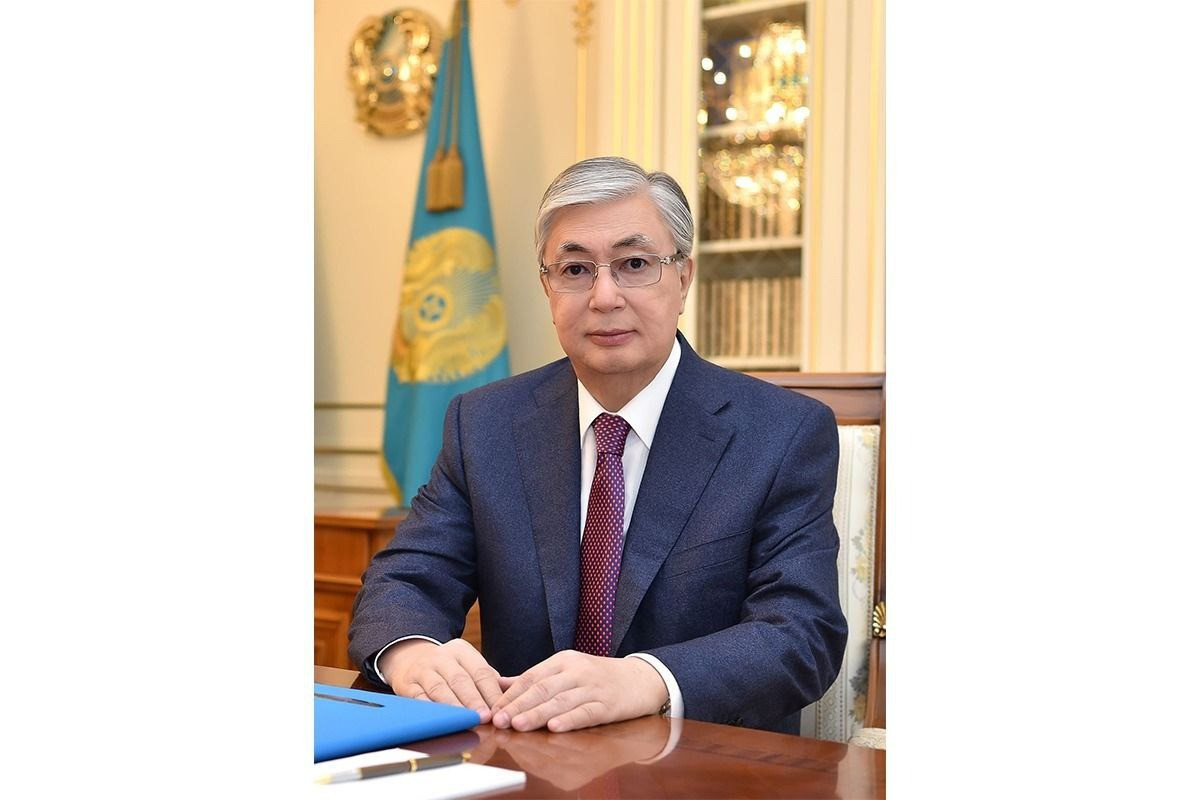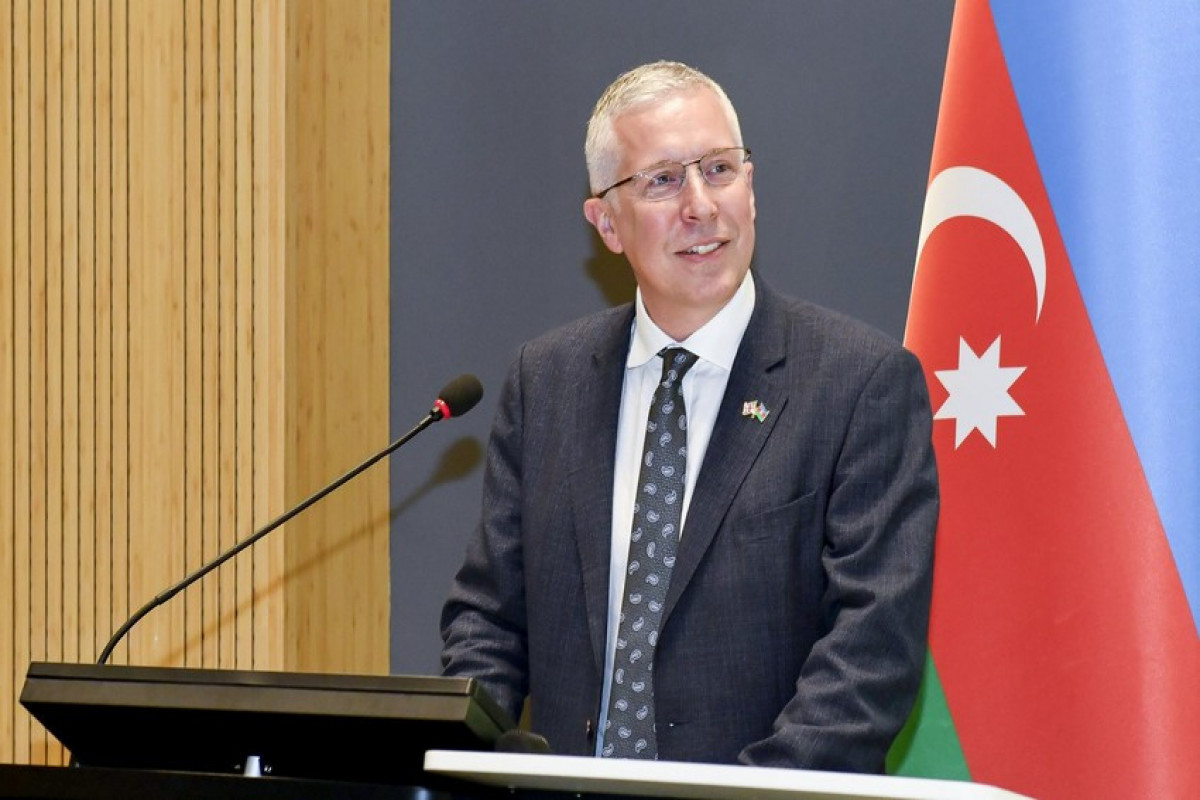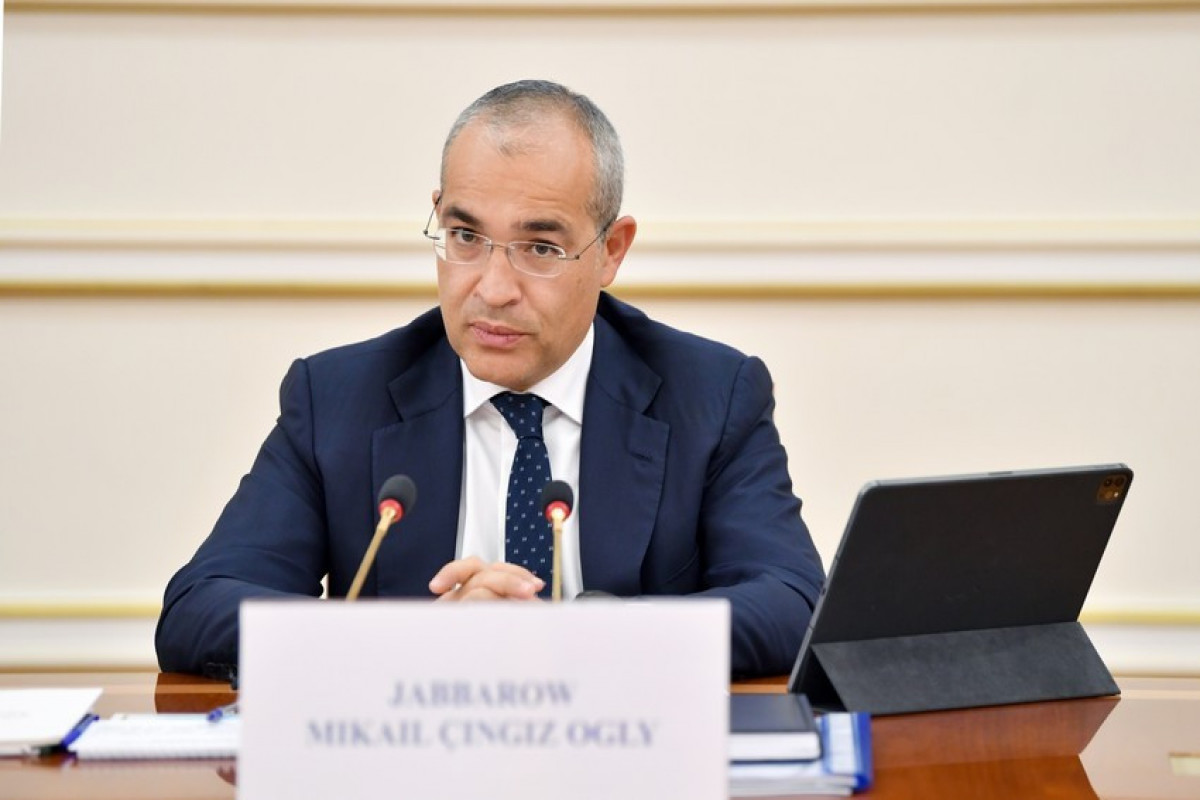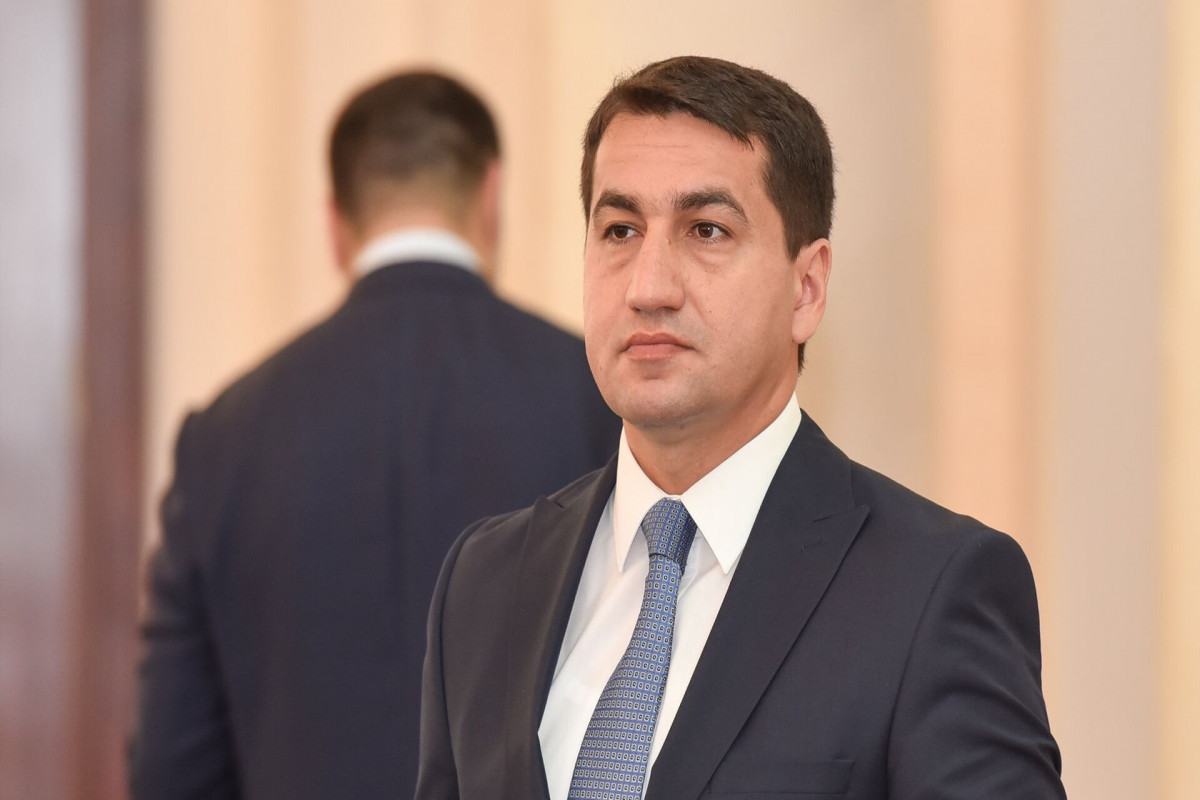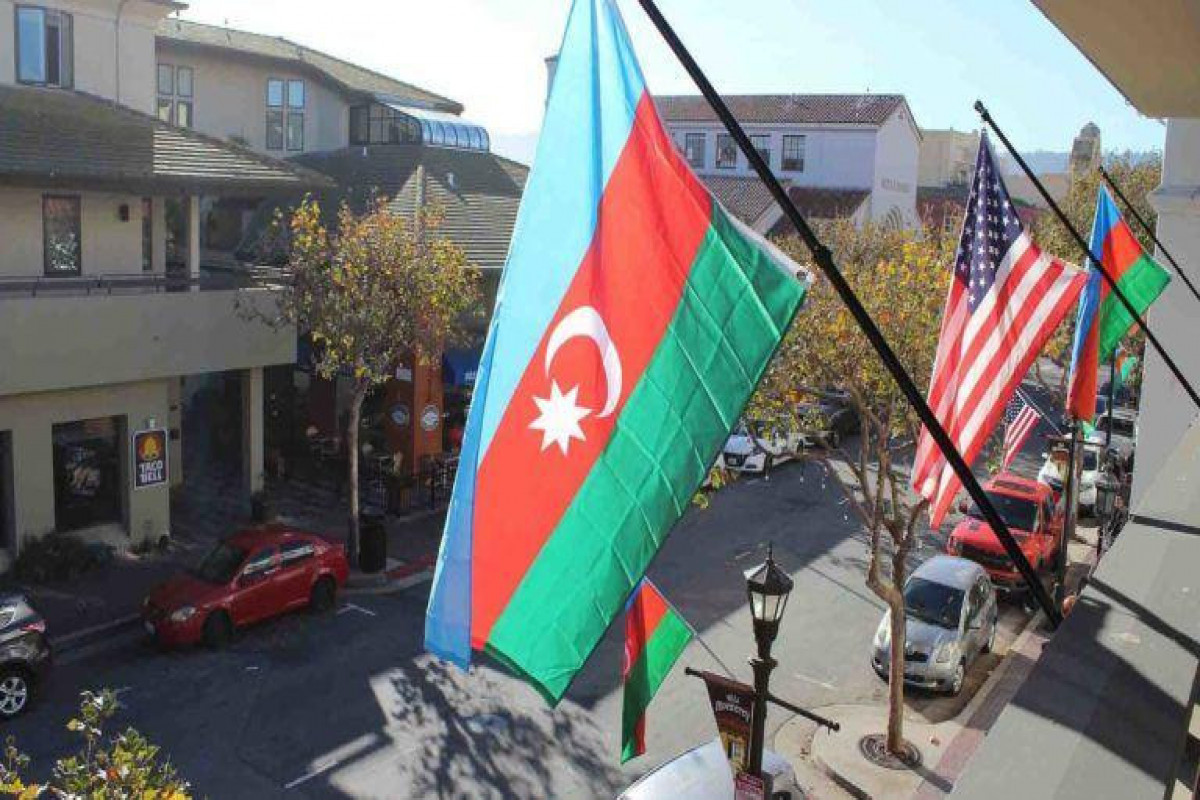The President of the Republic of Kazakhstan Kassym-Jomart Tokayev was interviewed by APA news agency on the eve of his state visit to Azerbaijan
– In August 2022, you made an official visit to Azerbaijan, which, of course, became a historical moment in the relations between the two states, giving impetus to the dynamics of their development. How would you characterize the current state of bilateral relations?
– The foundation for the successful development of our ties is, first of all, the centuries-old fraternal ties between the Kazakh and Azerbaijani peoples, many years of fruitful cooperation between our states, and mutual support in the international arena. And, of course, an important aspect is the personal, trusting and friendly relationship that we have developed with the President of Azerbaijan Ilham Heydar oglu Aliyev. This will help strengthen mutual understanding on the entire range of issues of bilateral and multilateral cooperation.
Taking this opportunity, I would like to once again congratulate the respected Ilham Heydar oglu on his convincing victory in the recent presidential elections. The voting results confirmed the popular support of the leader of Azerbaijan and recognition of his merits in ensuring national unity, territorial integrity and dynamic development of the state.
My official visit to Azerbaijan in 2022 was, in a certain sense, a breakthrough for the partnership between Baku and Astana. Firstly, this was my first visit to Azerbaijan as Head of State. Secondly, it took place on the eve of the 30th anniversary of the establishment of diplomatic relations between our countries. And thirdly, following the visit, the adoption of a joint Declaration on strengthening strategic relations and deepening allied cooperation became the starting point for a new stage of our cooperation. Modern Kazakh-Azerbaijani relations are on the rise. Systematic work is underway to build up contacts in the political, trade and economic, transit and transport, energy, agricultural, cultural, humanitarian and other spheres.
In addition to traditional mechanisms of interaction, Business and Expert Councils have been formed and operate. During my visit to Baku, we will launch the work of the Supreme Interstate Council and hold its first meeting. The regulatory and legal framework is gradually expanding; over the last year and a half alone, about 40 important bilateral documents have been signed. Another substantial package of documents is being prepared for signing during the upcoming visit. Natural This will give a new pace to our interaction. Since 2020, trade turnover between our countries has increased almost 5 times (from 109 to 529 million dollars). This is an impressive dynamic, and we plan to continue increasing volumes.
Our “portfolio” includes a number of projects that are important both for our countries and for the region as a whole. This is the expansion of the capacity of the Trans-Caspian International Transport Route (Middle Corridor), the laying of a fiber-optic communication line (FOCL) and an energy cable along the bottom of the Caspian Sea, the export of oil and uranium through Azerbaijan, and the supply of wheat from Kazakhstan to the Azerbaijani market. A number of joint initiatives are aimed at strengthening cultural ties and increasing tourist flows between the two countries.
Our common goal is to create truly strong relations between Kazakhstan and Azerbaijan in the strategic and allied sense. I am confident that with joint efforts we will achieve this goal.
– During your meeting with President Ilham Aliyev, an important decision was made on the Kazakh people’s contribution to the restoration of Garabagh. The Kazakh side, as a gift to the people of Azerbaijan, proposed to build a Children's Creativity Center in the city of Fuzuli, which will bear the name of the outstanding Kazakh composer Kurmangazy. What other projects does brotherly Kazakhstan plan to implement in our country in the future?
– We can already see how Karabakh is dynamically being revived. A lot of creative work is being done in this region. The transport, social, and tourism infrastructure is actively developing, airports, hotels, residential buildings, and schools are being built. Of course, we could not stay away from this noble cause. During a visit to Baku in August 2022, I announced the construction of the Children's Creativity Center named after. Kurmangazy in Fuzuli as a gift from the Kazakh people to Azerbaijan. The program of my current visit provides for the official opening of this Center. Undoubtedly, this institution will become another symbol of friendship, brotherhood, and mutual support of our countries and peoples.
I would like to reaffirm the interest of our companies to participate in the revival of Karabakh. I express my gratitude to the leadership of Azerbaijan for providing the Kazakh company with a project for the construction of the Central Regional Hospital in Fuzuli. We expect that there will be more similar projects with the participation of companies from the Republic of Kazakhstan shortly. I am confident that thanks to joint efforts, Karabakh will bloom with new colors and become an example of Azerbaijan’s creative policy. Restoring the region's infrastructure will contribute to the development of not only Azerbaijan but also the entire South Caucasus.
In addition, I would like to note that Kazakhstan is interested in the speedy conclusion of a peace treaty between Azerbaijan and Armenia. Kazakhstan, as an initiator and supporter of international peacekeeping initiatives, is ready to support any efforts aimed at the peaceful and stable development of the entire Eurasian region.
– During his inauguration, President of the Republic of Azerbaijan Ilham Aliyev called work within the Organization of Turkic States (OTS) a priority: “Our family is the Turkic world. “We feel great." Mr. President also noted that Azerbaijan has fraternal relations with all member states of the OTS, and the country’s policy is aimed at strengthening the organization: “We must jointly make sure that the Organization of Turkic States turns into an important actor and center of power in the global arena. We can only achieve this together.” How do you assess the future of the UTC and cooperation between Azerbaijan and Kazakhstan within this structure?
– Let me start with the fact that Kazakhstan and Azerbaijan are the founders of the Organization of Turkic States. The initiative to create the structure was put forward by Kazakhstan, and the agreement itself was signed on ancient Azerbaijani soil. It's almost been since then
fifteen years, and since then our common organization has come a long way toward institutionalization. Moreover, it is becoming a well-known and respected player on the international stage.
It is difficult to disagree with the leader of Azerbaijan in assessing the historical mission of the Organization of Turkic States. Indeed, the role of this integration association is difficult to overestimate. In a relatively short historical period, the cooperation of our states has demonstrated its viability and determined the contours of the Turkic world as a new geopolitical reality. Our task, figuratively speaking, is to give this sprout with strong genes sustainable development. The potential of OTS is enormous. Here are just some numbers: the total territory is about 4.5 million square kilometers, the total GDP is over 1.5 trillion dollars, and the population is more than 160 million people. Trade turnover within the OTS reached 42.3 billion dollars, and the total trade turnover of the Turkic countries in the world is about 1.3 trillion dollars. All countries of the Organization are confidently incorporated into world economic processes, represented, and actively work in key international organizations. I believe that this is more than enough for the further successful advancement of integration processes within the framework of the OTS. The spirit of the Turkic countries to develop cooperation on a wide range of issues, from transit and transport relations, economics, ecology, science, education, art, tourism, and sports to research into hitherto unknown pages of our common history, inspires confidence.
In this regard, I cannot help but note the work of other organizations that are part of the OTS family, such as TURKSOY, the Turkic Academy, and the Turkic Culture and Heritage Foundation. They not only carry out a humanitarian and educational mission but also bring a huge spiritual charge into the lives of our people. The Parliamentary Assembly of Turkic States (TurkPA) is an authoritative international body in which experience is exchanged and advanced ideas on lawmaking and the development of parliamentary diplomacy are accumulated.
The relatively recently established Turkic Investment Fund is designed to create a highly effective platform for attracting funds to assist in the development of intraregional trade, small and medium-sized enterprises, as well as for the implementation of joint projects with international financial institutions. Speaking about cooperation between Kazakhstan and Azerbaijan within the framework of the OTS, I would like to draw attention to the consonance of our approaches to the institutional development of the Organization.
Our countries are participants in all six international organizations of a Turkic orientation, and this is the clearest confirmation that Astana and Baku see the vector of development of UTG integration in the same way. To bring our fraternal peoples closer together, we invite athletes from Azerbaijan to take part in the V World Nomad Games, which will be held in Astana from September 8 to 14 of this year.
– Now, as we all see, the Trans-Caspian International Transport Route (TCIT) is becoming increasingly important both for our region and for the whole world. How do you see its potential and future role for the economies of the two countries?
– In the new geopolitical realities, the role of our countries in the promotion and development of transcontinental trade is rapidly increasing. Even a quick glance at the map speaks of the unique geographical location of Central Asia and the South Caucasus. Therefore, Kazakhstan, like Azerbaijan, is pursuing an active policy to strengthen the country’s transport and logistics potential. I won’t hide it; this is a strategic task for us. By 2030, we intend to repair 11 thousand km and build more than 5 thousand km of new railways. This will significantly increase the country's transport capabilities.
Today, the role of the Trans-Caspian International Transport Route, or the so-called Middle Corridor, in the promotion and development of transcontinental trade has rapidly increased. This is evidenced by the volume of cargo transportation along this route, which doubled in 2022, and by another 65% in 2023 to 2.7 million tons of cargo (2022 – 1.7 million tons).
In the future, we expect this level to reach 10 million tons. There is both demand and technological capabilities for this. Therefore, Astana and Baku are taking comprehensive steps in this area. A clear indication of this is the roadmap for the synchronous elimination of the so-called, adopted at the end of 2022. “bottlenecks” and the development of the Middle Corridor across the territories of Kazakhstan, Azerbaijan, and Turkiye for 2022-2027 (signed in November 2022 in Aktau).
Particular attention will be paid to the large-scale modernization of our seaports on the Caspian coast. In addition, to increase the volume of cargo transportation by railway organizations of Kazakhstan, Azerbaijan, and Georgia, a joint venture, Middle Corridor Multimodal Ltd., was created, which will provide services in a “single window” format.
The latest digital technologies will be used along the route. To do this, we engaged the multinational Singaporean company PSA, which developed a seamless digital corridor. We actively cooperate with such global players as Huawei, Wabtec, and Alstom to implement innovative solutions in the field of railway transport. They will make the industry more competitive and efficient. The further development of the route and its connection with other transport corridors also seems promising, which will provide additional conditions for broader trans-regional integration of the South Caucasus and Turkey with Kazakhstan, the countries of Central Asia, the EAEU, and China.
In general, TCIT has great potential, and, of course, the role of Kazakhstan and Azerbaijan in the implementation of this important project is very significant. The development of this artery will not only contribute to the expansion of trade dynamics but will also strengthen the position of our countries as a connecting bridge between East and West.
– The Caspian Sea unites Azerbaijan, Kazakhstan, and other coastal countries. President Ilham Aliyev and you always emphasize its special role and enormous prospects for our states and the entire world community. In your opinion, besides transport and transit opportunities, what else can the Caspian Sea offer? Will the active use of its resources have consequences for the regional and global ecology?
– The Caspian Sea is an important geographical factor that unites the states located on its coast. The Convention on the Legal Status of the Caspian Sea, signed on August 12, 2018, in Aktau, laid down the fundamental principles of harmonious cooperation between coastal countries and the rational use of sea resources.
In the current difficult geopolitical conditions, Kazakhstan needs to expand mutually beneficial and pragmatic interaction with all its neighbors in the Caspian Sea. In this context, the full development of its economic potential is of paramount importance for the entire region. As I already said, Kazakhstan and Azerbaijan are successfully implementing joint regional projects, including the Trans-Caspian International Transport Route (TITR) and the laying of a fiber-optic communication line (FOCL) along the bottom of the sea.
Along with the economic component, it is important to note that the Caspian Sea is also a bridge for strengthening cultural ties. Our region was the cradle of ancient civilizations, various peoples and ethnic groups lived here, state formations were created and replaced each other, and caravan routes passed through. The dialogue of cultures, languages, traditions, and customs still plays an important role in integration processes. I would like to emphasize that we bear a great responsibility to current and future generations for the preservation of this unique natural site.
In this regard, the environmental agenda is becoming increasingly relevant every year. We must not forget about caring for the Caspian Sea. On my instructions, a research institute was created this year that will deal with the environmental problems of the Caspian Sea. Similar organizations exist in other Caspian countries. In this regard, it seems promising to combine the efforts of our scientists to conduct research in such areas as lowering sea levels, preserving the population of the Caspian seal and ichthyofauna, as well as improving the health of the waters and coast of the Caspian Sea.
– Azerbaijan, like Kazakhstan, pays great attention to the development of the energy sector, including the green economy and renewable energy sources. As far as we know, our countries are implementing several promising projects in this area. Could you tell us more about them?
– Today, the entire civilized world is moving toward the goal of decarbonizing the economy, and Kazakhstan is no exception. We have set ourselves a fairly ambitious goal of achieving carbon neutrality by 2060. This is quite a difficult task, given that 70% of the country's electricity production is provided by coal-fired generation.
Nevertheless, the potential of “green” energy in our country is enormous: we are talking about 1 billion GWh per year. In this regard, the world's largest companies today are showing great interest in investing. One of the most promising and large-scale is the project for the production of “green” hydrogen in the Mangistau region. A unique enterprise worth 50 billion euros is being created here together with the German-Swedish company Svevind Energy Group.
Shortly, a wind power plant with a capacity of 1 GW will be built in the south of Kazakhstan. Also, the implementation of projects with leading global companies, such as ACWA Power from Saudi Arabia, Masdar from the UAE, etc., plays a strategic role.
I know that Azerbaijan has also achieved serious success in actively promoting the “green” agenda. Today, your country is a successful supplier of electricity to foreign markets and participates in an initiative called Black Sea Energy, which is part of the European Global Gateway initiative.
Given Kazakhstan's enormous renewable energy potential, we welcome Azerbaijan's initiative to coordinate efforts and synchronize the further development of energy systems of countries in the region, including potential sustainable interconnection of energy systems. Last November in Baku, the ministers of economy and energy of Azerbaijan, Kazakhstan, and Uzbekistan discussed the prospects for exporting electricity from Kazakhstan and Uzbekistan to Europe through the territory of Azerbaijan.
An exchange of views also took place on the development of projects in the field of “green” energy. Following the meeting, our countries reached an agreement to create a joint venture to export electricity to Europe and prepare an economic feasibility study for the project. Thus, projects implemented in the Black and Caspian Seas will soon be connected, which will strengthen the position of our countries as electricity suppliers.
– This year, Baku will host the Conference of the Parties to the Framework Convention on Climate Change COP29. Kazakhstan will hold two major climate summits under the auspices of the UN in the coming years. We regard this as a vote of confidence from the international community. What ideas, experience, and knowledge could Kazakhstan share in this direction?
– Of all the challenges we currently face, perhaps the most pressing is climate change. Central Asia is at the forefront of confronting this challenge. Even if we successfully limit global temperature rise to 1.5 degrees Celsius by 2050, which is looking increasingly unlikely, we will face a temperature rise of 2 to 2.5 degrees Celsius here in Central Asia.
We are concerned about the process of depletion of water resources. Droughts and floods in Central Asia will cause widespread damage and reduce crop yields by 30%, resulting in an estimated 5 million internal climate migrants by 2050. These factors directly or indirectly pose a serious threat to the sustainable development of our states.
As you rightly noted, to strengthen the regional process and intensify joint efforts, Kazakhstan has already taken the initiative to hold the Central Asia Regional Climate Summit in 2026, at which we will be glad to see Azerbaijan as one of the main guests.
I believe that this initiative will help advance effective climate policy and facilitate investments that accelerate the transition to sustainable energy in Central Asian countries. The summit will enable the adoption of joint strategies to reduce carbon emissions in the region.
Our country was one of the first in the CIS to launch the Greenhouse Gas Emissions Trading System (GTS), which includes large energy, oil and gas, industrial, chemical, and mining enterprises. We welcome the fact that Azerbaijan is the first of the Turkic states of the CIS to be awarded the right to host such a large-scale event as COP29. In this sense, we have an excellent opportunity to study the experience of Azerbaijan in holding major environmental events on a global scale, and we are ready to provide the necessary assistance.
– Mister President, thank you for the interesting and informative interview. On the eve of your state visit to Baku and the spring holiday of Nowruz, what would you like to wish my compatriots?
– The Kazakh and Azerbaijani peoples have gone through many trials. We have common roots, related languages, and similar cultures. Today we are building our common future together. This bright holiday, whose history goes back centuries, is the personification of unity, peace, harmony, and the inextricable connection of times and generations.
The Nowruz holiday, being our common heritage plays an important role in strengthening the spiritual closeness of the peoples of Kazakhstan and Azerbaijan. Nowruz means a new day, renewal. It is symbolic that today processes of renewal and revival are underway between Kazakhstan and Azerbaijan, and throughout the Turkic world; we have entered a new era of our cooperation. On these holidays, I wish the brotherly people of Azerbaijan happiness and further prosperity. Nauryz kutty bolsyn!


